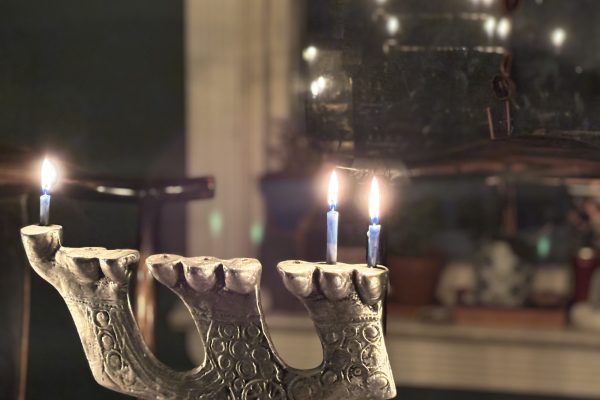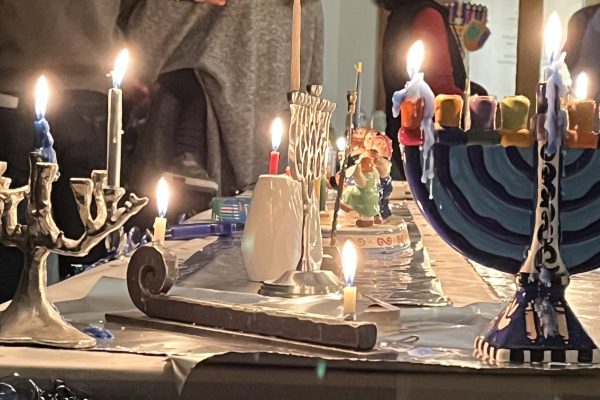This Shabbat, we mark the end of a distressing week full of social unrest, systemic violence against people of color, and an ongoing health pandemic. There is a lot of pain to hold alongside any other challenges we may individually be going through right now.
While the crises of our time may not stop just because it’s Shabbat, we should still use this sacred day to make room for our tears and our suffering and nurture ourselves and one another back to a place of hope and resolve.
The Book of Proverbs says, “The breath of a person is the light of the Holy One.” Breath is precious; it is a holy spark. And yet, people of color in this country know all too well how brutally and unfairly one’s life-breath can be taken away. COVID-19 has also brought the fatal loss of breath to the forefront of just about everything.
While a breath, a light, can indeed be cruelly extinguished, its power can also spread far and wide.
As the sun goes down this Friday night, I want to offer a way to honor our shared human light and breath. Designate a quiet space for solitude or close (socially-distant) community, whatever feels right to you. Light as many candles as you can and close your eyes. Breathe, slowly. Breathe in the present moment and breathe out the week that has passed. Slow down your thoughts. Take in all that you’re feeling. Accept your vast emotions. Know that whatever you feel is okay.
I’ve been inspired this week by the words of Audre Lorde, “I have a duty to speak the truth as I see it and share not just my triumphs, not just the things that felt good, but the pain. The intense, often unmitigated pain. It is important to share how I know survival is survival and not just a walk through the rain.” Take her wisdom to heart if you can.
When ready, write on one small piece of paper the name of a breath that has been lost this past week, this past month, or in the months or years prior. It can be that of a family member, a friend, or someone you don’t know personally but want to memorialize (of course, you can also do more than one). Take another paper and write one way you can honor that precious breath through your life and your actions. Share a hope for our world.
Look at these pieces in the flickering light of your Shabbat candles side by side. Read them out loud. Next, you can recite this prayer and/or the prayers for the Shabbat candles:
A PRAYER FOR DIFFICULT TIMES
BY RABBI ILANA ZIETMAN
(adapted from “A Prayer” in Naomi Levy’s To Begin Again, p. 28)
When we are lost, help us find our way.
When we are hurt, wrap us in a loving embrace.
When we cry out, accept our protest as prayer,
As a call to rid this world of pain and suffering.
Today, give us the courage to plant seeds of change.
And help us to know life again, even in the face of death. Amen.
בָּרוּך אַתָּה ה׳ אֱלֹהֵינוּ מֶלֶך הָעוֹלָם אַשֶׁר קִדְשָׁנוּ בְּמִצְוֹתָיו וְצִוָנוּ לְהַדְלִיק נֵר שֶל שַבָּת
Barukh a-ta A-do-nay Elo-hei-nu me-lekh ha-o-lam a-sher ki-di-sha-nu bi-mitz-vo-tav vi-tzi-va-noo li-had-leek ner shel Sha-bat.
Blessed are You, Source of Life, Who provides a path to holy living through the mitzvah of lighting the Shabbat candles.











